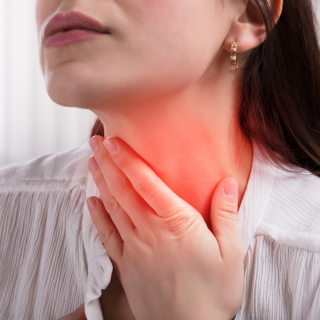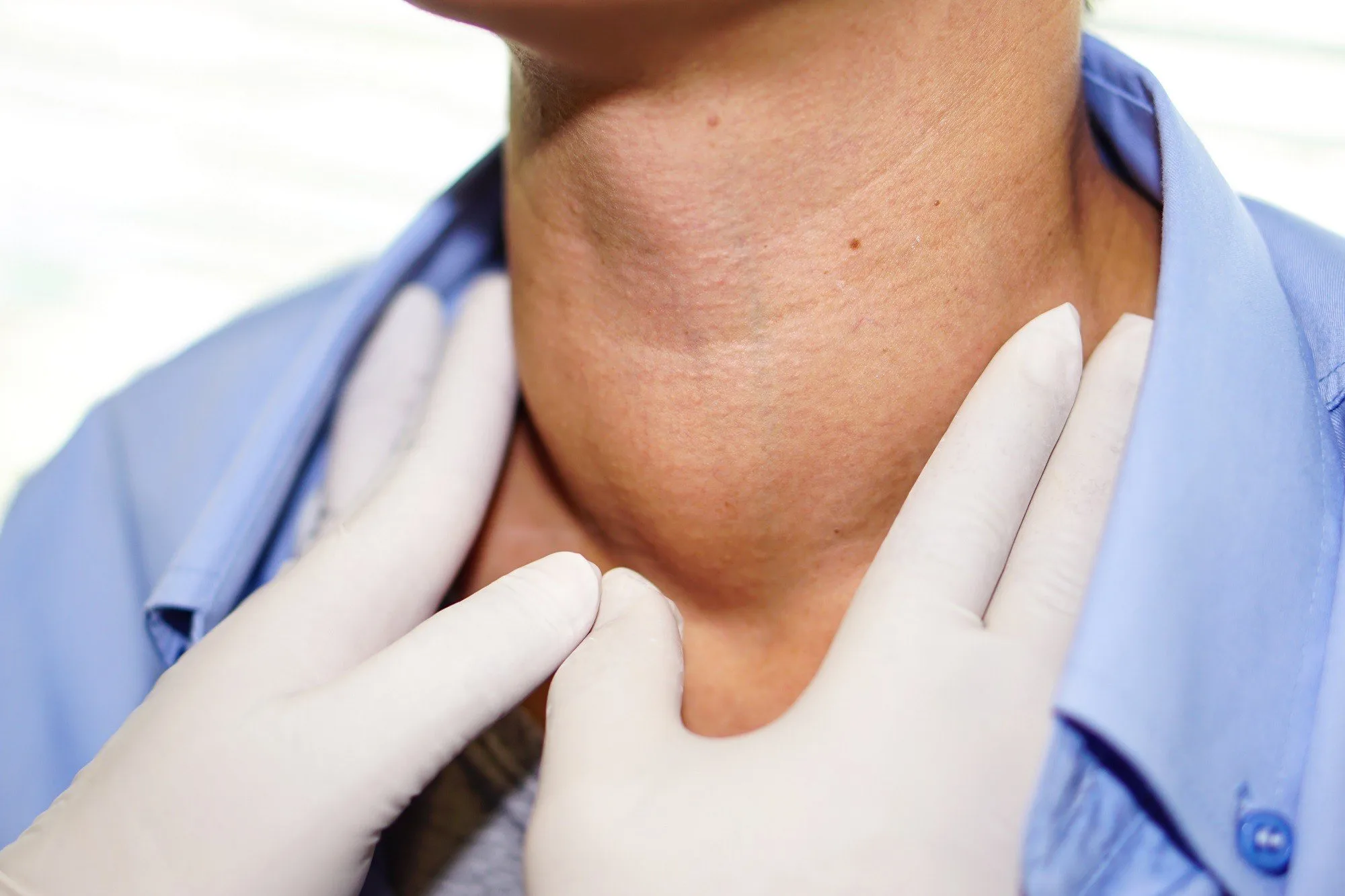Your thyroid is one of the most important glands in the human body. According to Dr. Fathima Docrat, a female surgeon whose expertise focuses on thyroidectomy and parathyroidectomy, your thyroid plays a major role in the metabolism, growth, and development of many organs in our body.
Now since it plays such an important role in the body, it’s our responsibility to protect its health. Unfortunately, there are a few things that can affect thyroid health. Additionally, a new study has suggested that outdoor artificial light may actually be increasing one’s risk of thyroid cancer.
What is thyroid cancer?
According to the American Thyroid Association, thyroid cancer is the fastest growing cancer in women. Thyroid cancer, which is broken down into four different types, is often very treatable as long as it is caught early and managed well.

Thinkstock/Getty Images
“Four to six percent of nodules in the thyroid gland are cancerous.” explains Dr. Docrat, “Additionally, thyroid cancer is a very slow-growing cancer. Thus, it can be easily managed most of the time.”
The study
Urbanization has led to the growth in electric lighting during the night. As convenient as this lighting is, previous research has linked nighttime light to elevated cancer risk. For instance, a study published in the Science of The Total Environment journal revealed that exposure to outdoor light at night was associated with a 12% higher risk of breast cancer, whereas indoor light at night exposure was linked to a 13% higher risk of breast cancer.
As a result of these findings, and because some breast cancers may share a common hormone-dependent basis with thyroid cancer, a team from the University of Texas Health Science Center at Houston School of Public Health attempted to find an association between light at night and later development of thyroid cancer.
The study, published in the peer-reviewed journal CANCER, examined participants in the NIH-AARP Diet and Health Study. The previous study had recruited 464371 adults aged 50 to 71 years in 1995–1996. The investigators analyzed satellite imagery data to estimate levels of light at night at participants’ residential addresses, and they examined state cancer registry databases to identify thyroid cancer diagnoses through 2011.
The results
 Among the 464371 participants who followed for an average of 12.8 years, the study found that 856 cases of thyroid cancer were diagnosed (384 in men and 472 in women – women more likely to suffer from thyroid disorders and cancers).
Among the 464371 participants who followed for an average of 12.8 years, the study found that 856 cases of thyroid cancer were diagnosed (384 in men and 472 in women – women more likely to suffer from thyroid disorders and cancers).
When researchers compared their findings with the lowest quintile of light at night, they found that the highest quintile was associated with a 55 percent higher risk of developing thyroid cancer. The most common form of thyroid cancer was papillary thyroid cancer, and it was stronger in women than in men.
What does this mean?
According to researchers, the reason for this may be because light at night suppresses melatonin, which may have important anti-tumor effects, and it also disrupts the body’s circadian rhythms, which is a risk factor for various types of cancer. Nonetheless, the researchers still believe that more studies need to be done
“As an observational study, our study is not designed to establish causality. Therefore, we don’t know if higher levels of outdoor light at night lead to an elevated risk for thyroid cancer; however, given the well-established evidence supporting a role of light exposure at night and circadian disruption, we hope our study will motivate researchers to further examine the relationship between light at night and cancer, and other diseases,” said study lead researcher Dr. Qian Xiao, Ph.D. “Recently, there have been efforts in some cities to reduce light pollution, and we believe future studies should evaluate if and to what degree such efforts impact human health.”
How can I take care of my thyroid?
Dr. Docrat suggests that you consume iodinated salt. She also advises increasing your intake of dairy products that include cheese, cow’s milk, eggs, and ice cream. Additionally, it would be best to limit alcohol consumption, quit smoking, cut back on processed foods, and limit soy intake.
References
Lai, K.Y, Sarkar, C., Ni, M.Y, Lydia W.T. Cheung, L, et al. (2021). Exposure to light at night (LAN) and risk of breast cancer: A systematic review and meta-analysis, Science of The Total Environment, Volume 762, 143159, ISSN 0048-9697, https://doi.org/10.1016/j.scitotenv.2020.143159.
Zhang, D, Jones, RR, James, P, Kitahara, CM, Xiao, Q. (2020). Associations between artificial light at night and risk for thyroid cancer: A large US cohort study. 2020. https://doi.org/10.1002/cncr.33392



![women [longevity live]](https://longevitylive.com/wp-content/uploads/2020/01/photo-of-women-walking-down-the-street-1116984-100x100.jpg)










